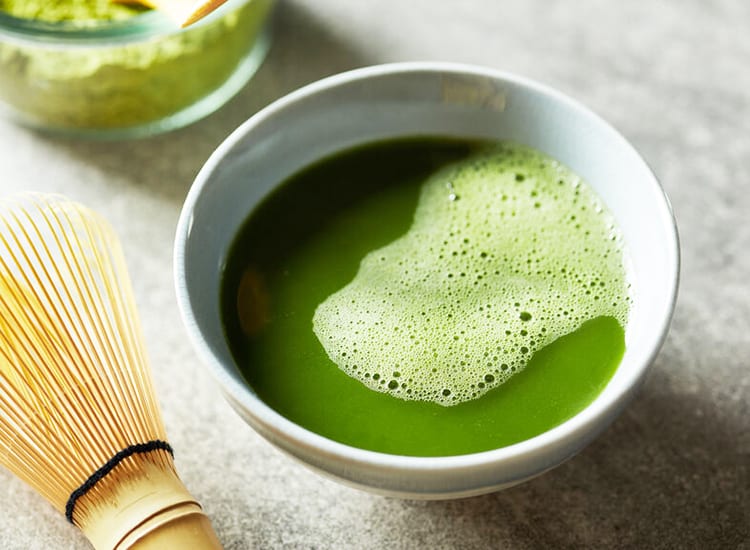Clean 21 Gut Health Detox
Our Signature 21-Day Full-Body Reset for Longevity
Questions? Ask about this product
Free Shipping On Orders Over $50
Complementary products


There is no doubting that matcha can be a healthy, metabolism-boosting, antioxidant-packed addition to a healthy day (and yes, even on the 21-Day Clean Program!). Mindfully making and sipping this lovely green drink in the morning has become one of our favorite routines.
Matcha is made from high-quality, whole green tea leaves that have been ground into a powdered form. Because of this, it’s a more potent source of nutrients than regular steeped green tea. In addition to providing vitamins and minerals, matcha is rich in antioxidants called catechins, which have been tied to protection against heart disease, cancer, and aging.
One question that we get often is: does matcha contain caffeine?
The short answer: yes.
The amount of caffeine found in matcha can vary somewhat by the way it is grown and processed. The amount of caffeine that winds up in your cup also, of course, depends on how much matcha you use per serving. The good thing with matcha is a small amount, typically ½-1 teaspoon, goes a long way.
Generally speaking, matcha has about half the caffeine as a cup of coffee, and roughly double the caffeine that a cup of green tea. An 8-ounce cup of coffee contains about 120-140 mg of caffeine. An 8-ounce cup of matcha (1 teaspoon of matcha), can contain roughly 70 mg of caffeine, compared to a cup of green tea, at about 30-40 mg.
One of the biggest upsides to drinking matcha is the difference in the type of “caffeine buzz” that it gives. Matcha provides energy and focus without the anxiety, jitters, and sleep disruption that often accompany coffee. This is due to the presence of L-theanine, an amino acid that alters the impact of caffeine’s stimulating effects and induces relaxation without drowsiness. Fun fact: You’ll actually find L-theanine in many sleep supplements on the market.
When you combine that with the caffeine that’s in the matcha, you’re feeling more focused, you’re feeling alertness but without that jittery feeling when you consume a lot of caffeine from coffee. The combination of caffeine with the L-theanine offer a “cleaner buzz”, without the intense crash.
The caffeine effects also last longer and rise more gradually in the body. This is due to both the L-theanine and consuming the whole leaf, which leads to the caffeine molecules binding to the larger particles of the leaf. When it is digested, it takes longer to metabolize. The effects of matcha can last three to six hours, depending on the person.
Basically, matcha is more like an easy, focused ride, than a high-speed train with a jittery spike and a big drop. This slow dissemination of caffeine helps to provide sustained energy for the next couple of hours. In our opinion, we find it way easier on our adrenals. Because of the L-theanine effect, the high mineral content, and the immense benefits of the antioxidants, we think this is a great replacement for coffee on a cleanse.
If you feel like you suffer from too much cortisol or adrenal fatigue, try swapping your coffee with matcha or herbal tea instead to support your system.
Ready to try it? Check out our new Pumpkin spice matcha latte.
Recipe and photography by Hannah Aylward
If you enjoyed this article, you might also like The best alternatives to coffee